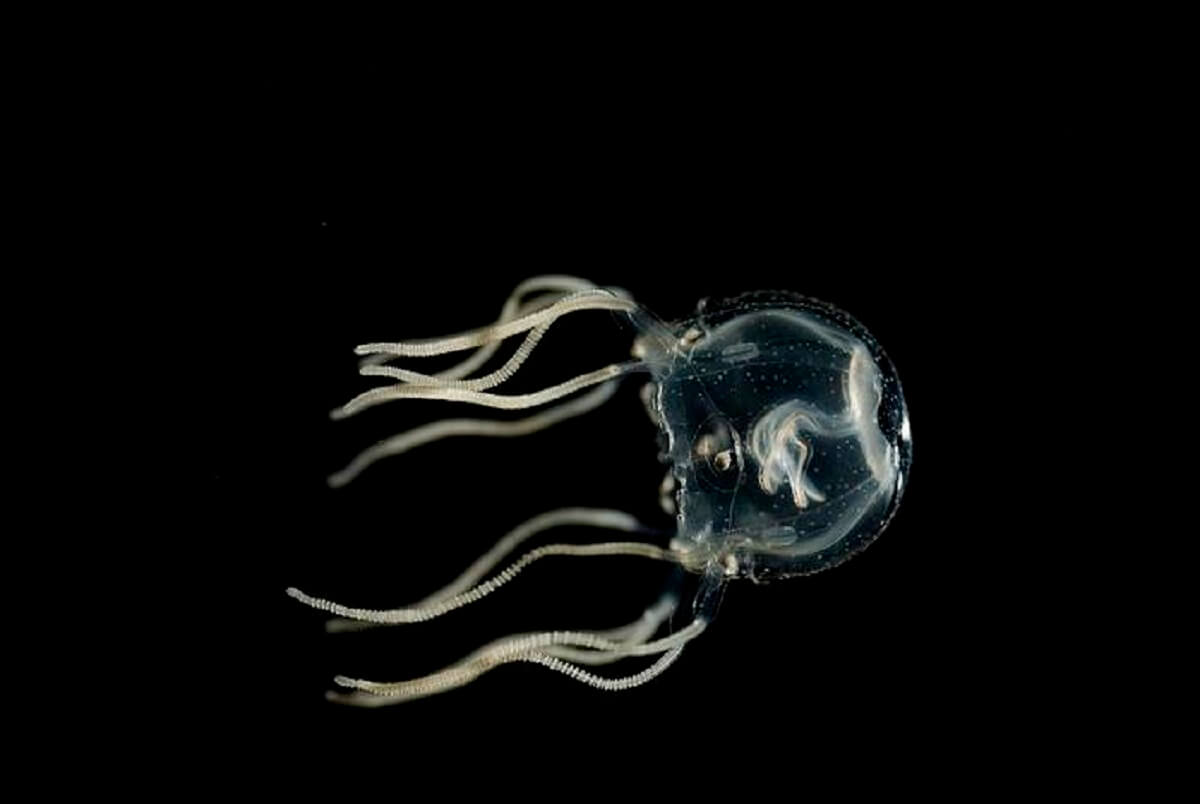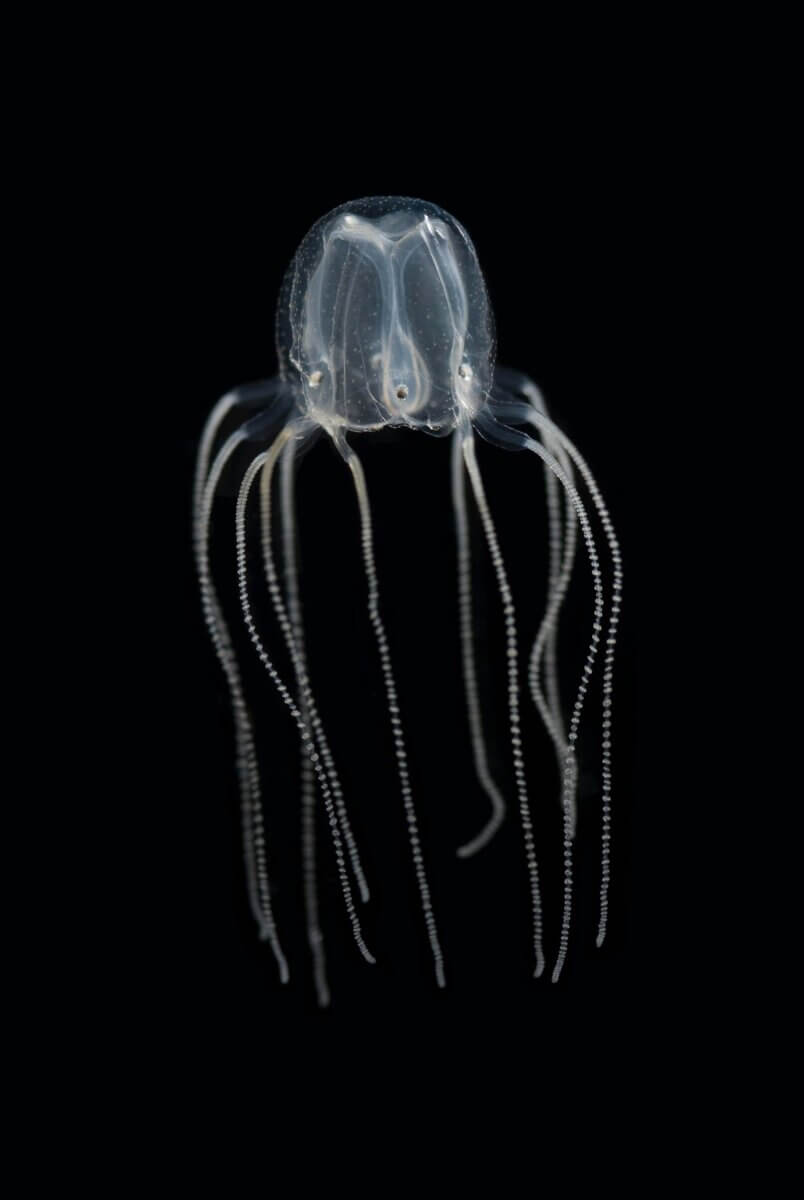
A Caribbean box jellyfish (credit: Jan Bielecki)
COPENHAGEN, Denmark — New research reveals that jellyfish, specifically the poisonous Caribbean box jellyfish, possess much higher learning capabilities than scientists previously assumed. This study challenges existing perceptions, suggesting a foundational shift in our understanding of the brain, with potential implications for studying our own brains and degenerative conditions like dementia.
Traditionally, jellyfish, part of the earliest living animals (cnidarians) have been regarded as beings with primitive learning abilities due to their simple nervous systems that developed over 500 million years ago. The conventional belief held that advanced nervous systems correlate with advanced learning potential in animals.
Jellyfish, also recognized as one of the most venomous creatures, inhabit Caribbean mangrove swamps, utilizing their sophisticated visual system to hunt tiny copepods amidst the roots.
“We previously believed that jellyfish could only manage the most basic forms of learning, such as habituation,” says Professor Anders Garm, a neurobiologist from the University of Copenhagen, in a media release. “However, our findings show that jellyfish exhibit a much more nuanced learning ability, enabling them to learn from their mistakes and adjust their behavior accordingly.”

The new study highlights the jellyfish's ability to alter behavior based on experience, a feature considered one of the advanced attributes of a nervous system. The box jellyfish’s proficiency in assessing distances and adapting their hunting strategies daily, despite their limited nerve cells, reveals an ability for associative learning comparable to advanced animals like fruit flies and mice.
“If you want to understand complex structures, it’s always good to start as simple as you can. Looking at these relatively simple nervous systems in jellyfish, we have a much higher chance of understanding all the details and how it comes together to perform behaviors,” stresses Prof. Garm.
This discovery opens a door to studying the specific alterations occurring in a nerve cell during advanced learning. By pinpointing the exact cells involved in learning and memory formation, researchers hope to observe the structural and physiological changes taking place within the cells during learning.
“It’s surprising how fast these animals learn; it’s about the same pace as advanced animals are doing,” Prof. Garm explains. “Even the simplest nervous system seems to be able to do advanced learning, and this might turn out to be an extremely fundamental cellular mechanism invented at the dawn of the evolution nervous system.”
This revelation not only broadens the scope of what simple nervous systems can achieve but also holds promise for understanding more intricate neurological structures and conditions, potentially unveiling the mysteries of memory and learning in the intricate labyrinth of the brain.
The study is published in the journal Current Biology.
South West News Service writer Stephen Beech contributed to this report.











If this jelly fish can learn from its mistakes that puts it a little ahead of humans.